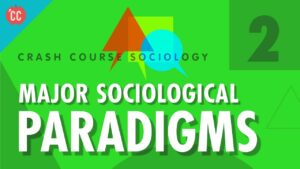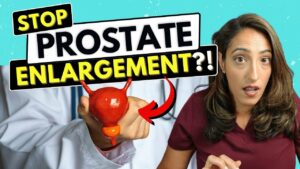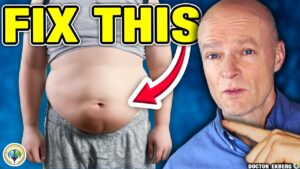In this video, Dr. Daniel Rubinstein, a dentist based in New York City, discusses various aspects of oral health. He emphasizes the importance of regular check-ups, as dentists examine not only teeth and gums but also look for signs of infections, lesions, and even early signs of cancer. Dr. Rubinstein also addresses the issue of chronic bad breath, which can be caused by gum disease, dry mouth, acid reflux, and certain infections. He advises basic oral hygiene practices such as brushing, flossing, and using alcohol-free mouthwash, and suggests tongue scraping as an additional technique to remove bacteria and improve breath.

Our Summaries are written by our own AI Infrastructure, to save you time on your Health Journey!
Key Insights:
- Dentistry can have a significant impact on a person’s life and confidence.
- A dental examination involves checking teeth, gums, tonsils, tongue, glands, and facial muscles.
- An uneven bite can lead to headaches and other problems in the body.
- Dentists and hygienists use tools to detect early signs of abnormalities and lesions in the mouth.
- Gum disease and dry mouth can cause chronic bad breath (halitosis).
- Proper oral hygiene practices, hydration, and avoiding smoking and alcohol can help with bad breath.
- Tongue scraping can be effective in removing bacteria and improving bad breath.
- Frequency of tongue scraping can vary, but once or twice a day is recommended.
- Everyone has a unique tongue, and different tongues may require different care.
- Regular dental check-ups are important for overall oral health.
Transcript
Hello everybody, we’re talking about the mouse, that’s right, this is Dentist Dr. Daniel Rubinstein, and he’s going to tell us everything we need to know when it comes to your oral health. My breath smells okay, right?
There we go. (Music)
Dr. Rubinstein is a dentist based in New York City, though you might have seen him on his Instagram or TikTok where he’s known as the dancing dentist. Really? That’s so, mm-hmm.
To the right, Dr. Rubinstein, how long have you been a dentist?
I’ve been a dentist about nine years. I graduated from NYU College of Dentistry, and I did my residency at Yale University. Awesome, very nice.
So why dentistry though?
You know what it is, growing up, even though I grew up to two parents for a dentist, dentistry was always very dry, boring. People were always scared of the dentist, but what I wanted to do was change that stigma. I mean, your smile could change your confidence, your energy. The type of dentistry that I do, it really impacts a person’s life. It completely changes them. This particular patient kind of neglected himself, and you know, it was amazing and it was an honor for me to help him and to hear his story. You know what? I think we all can make a difference in the world. I just use my tool as a dentist to do that.
So here’s my first question. Yes, we have to go to the dentist, we know we’re going for a cleaning, and we know we’re going in there and say, „Ahh!“ But what else are you looking for?
The cleaning is a term that I use for carpets and cars. We’re not here to do cleaning. So, okay, we’re doing an oral health examination. Hygienist, the dentist is here to really improve your oral health and overall health. So we’re looking at teeth – if they’re broken, teeth if there’s any infections in the teeth, cavities. We’re looking at your gums – is there any gum infections, swelling of the gums? We’re looking at the tonsils – if there’s any inflammation because that could be a sign of some type of infection. We’re looking at your tongue, which is super important because it tells us a lot about the rest of the body outside of the mouth. We’re looking at your glands to make sure there’s no infections or any swellings. I’m looking at the muscles of your face because that could tell us if you’re clenching and grinding. I’m looking to see if your bite is equilibrated, is even because that’s super important because uneven bite could cause headaches and other problems in your body. I’ve had a really uneven bite my entire life, and I never attributed it a headache to an uneven bite. There’s this muscle right here. The masseter and the temporalis. And these muscles are overworked anytime you have an uneven bite or if you’re clenching and grinding.
Not only are we looking at teeth and gums and all those things, but we’re also trying to see if there’s any signs of lesions that could be cancerous. So that’s why we’re looking in the inside of the mouth, on the cheeks, the back of the throat, and we actually have a tool that shines inside the mouth that could show early signs of detection if there’s any cell abnormality tissue abnormalities in the mouth. So you want your dentist and hygienist to be using all these tools to make sure that you’re healthy.
Okay internet, give us your best shot. This topic is something that everyone wants to know about – bad breath. I mean, there’s nothing wrong with it, I mean obviously there’s something wrong, but more specifically, they want to know what causes chronic bad breath and if you have it, what can you do about it?
So chronic bad breath, also known as halitosis, there are many things that could cause chronic bad breath including if you have gum disease. So when your gums are infected, inflamed, and they have deep pockets, bacteria slides into those pockets producing a bad odor, and that could cause that stinky chronic bad breath. And you need to deal with it by going to the hygienist and letting them clean your gums properly. If your gums are a little bit inflamed, which is called gingivitis, it could get even more severe if it’s not treated, but we can refer you to a periodontist who is a gum specialist, and he or she could actually evaluate you properly and help you achieve the healthy gums that you deserve.
Another thing that could cause halitosis, bad breath, is dry mouth, also known as xerostomia. The things that could cause dry mouth are basically what we’re doing – having a conversation, talking for a long time. There’s also people that take medication, make sure one of the symptoms is not dry mouth, and if it is, then make sure you handle it by drinking more water to hydrate your mouth. Also, there are people that have certain salivary gland deficiencies and problems that could cause dry mouth. That’s why it’s so important to take those x-rays, get those examinations. You really need to go to the dentist and the hygienist and let them touch your face, touch your neck.
The acid reflux could cause a serious amount of dry mouth, bad breath, and also this irritation in the throat, right?
Right now, is that you as well?
Alright, the dentist can go to the dentist for the irritation in the throat. You know we could look at and see signs of irritation, but we would refer you to a specialist.
Another thing that could cause bad breath, you know we’re living in the time during COVID where a lot of people are not feeling well, they’re sick. Having a nose infection, throat infection could cause bad breath. So that’s definitely something that needs to be addressed. And wearing masks, so you know you can actually smell your bad breath. It goes back to you. I feel like some people are so immune to it.
There’s one thing you guys could do if you really want to see if you have bad breath. Just the back of your hand, make sure it’s clean, wash your hands, lick it, wait a few seconds, and then smell it. And then that’s a little bit of a sign that you could see if you have bad breath.
Okay, so if you’re someone dealing with chronic bad breath, what can you do about it besides doubling down on the Altoids?
Make sure you’re brushing, you’re flossing, you’re rinsing with alcohol-free mouthwash, you’re brushing your tongue. That’s the basics. Then you could also hydrate your mouth, drink more water, not soda, and stay away from smoking and drinking alcohol.
Now, there are some people on TikTok who I see doing something that supposedly helps with bad breath. It’s called tongue scraping. Take a look at this video, which has 11.5 million views. Watch as they literally are scraping their tongue. Wow.
So I would think that, you know, maybe they’re taking a layer away. You know how our skin has a layer of epidermis and dermis and derm, and maybe the tongue also has the same kind of layers. I mean, is it helpful?
100%. There’s sometimes they have very deep grooves in it, and that’s where it harbors a lot of that bad breath and bacteria. So by scraping or brushing or whatever technique you find best for you, and if you do that, it’s going to help with bad breath.
Yeah. So I mean, if you’re going to do it though, how many, how often should you do it? Should you do it breakfast, dinner, every time you eat in the morning, at night? How often should you do it?
So I actually do it once a day. I wouldn’t be against you guys doing it twice a day, in the morning and night. For me, repetition is very important. So the more often you do it, the less likely you will have bad breath or other problems associated with that, right? So there’s no risk of damaging anything. As often as you do this, you will have good smell and breath. What’s funny is that a lot of people that either are smokers or have this like layer of bacteria on their tongue, after they remove it, they realize that it could kind of improve a little bit of their taste. So if you guys want to enjoy food a little bit better, remove that stuff on your tongue.
So you’re saying that people have different types of tongues?
Yes.
Okay, what type of tongue do I have?
So your tongue is fairly white, meaning that you might have a little bit of dry mouth. But everyone has very different tongues. Not every tongue is the same. It’s like a fingerprint. Some tongues are hairier, some tongues have deeper grooves, some tongues have like stains on it from smoking and eating certain foods. So I want you guys to go in the mirror and look and see what type of tongue you have.
Comment below with your pressing health questions, and of course, hit subscribe here to the health channel to get more answers from medical experts on the questions you want to know.
Dr. Rubinstein, thank you so much for joining us and answering our pressing dental questions.
Thank you for having me.
Yes, remember to see your dentist for any medical advice, right, Dr. Rubinstein?
Yes, ma’am.
Yes, now, um, this tooth right here, it’s just been bothering me. It’s way back there, you can’t really see it.





